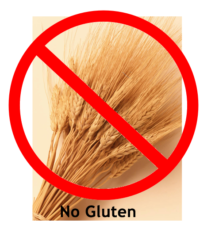Nearly two million Americans have celiac disease and should avoid eating gluten, a new study finds. However, as little as a decade ago, virtually no one in the U.S. seemed to have a problem eating the protein that’s found in bread and other foods. Does the national uptick in people eating gluten-free foods suggest a celiac disease epidemic or are people unnecessary turning to the diets as a food fad? According to a new study from the Mayo Clinic, it may be both. It found most people with celiac disease might not be aware they have the condition, and many people eating gluten-free diets have never been diagnosed with celiac disease.
For the study, Dr. Joseph Murray, a gastroenterologist at the Mayo Clinic in Rochester, Minn., and his team looked at blood samples taken from Americans in the 1950s and compared them with samples taken from people today and determined it wasn’t just better diagnosis driving up the numbers. Celiac disease actually was increasing. Indeed, the research confirms estimates that about 1 percent of U.S. adults have it today, making it four times more common now than it was 50 years ago.
That translates to about 1.8 million Americans with celiac disease, but about 1.4 million people with the condition may not be aware they even have it. On the flip side, about 1.6 million people in the U.S. are on a gluten-free diet even though they haven’t been diagnosed with celiac disease.
Celiac disease is a condition that damages the lining of the small intestine when a person eats gluten found in wheat, barley, rye or some oats, preventing the intestine from absorbing necessary nutrients. A strict gluten-free diet is often prescribed for people with the disease. Fads aside, the new study suggests more people are truly getting sick from the gluten found in wheat, rye and barley, but the reasons aren’t clear. In the most serious cases, gluten triggers celiac disease, which can cause symptoms including abdominal pain, bloating and intermittent diarrhea. The lack of nutrients can cause sufferers to experience weight loss, fatigue, rashes and other problems. Celiac disease is different from an allergy to wheat, which affects a much smaller number of people, mostly children who outgrow it…
Read more: CBS News

